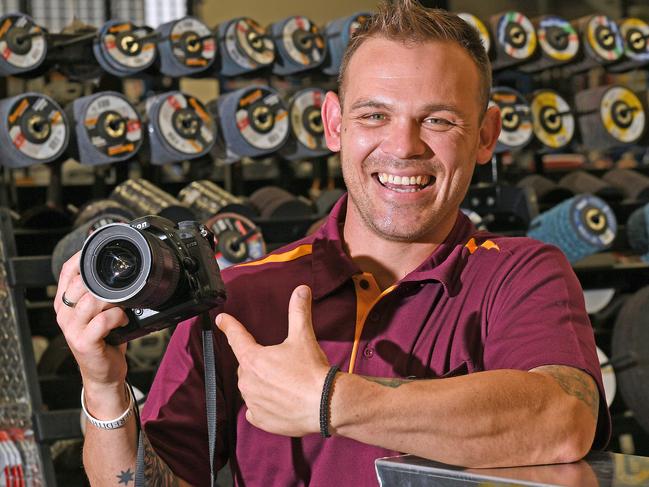Half a million Australian workers make a career change
More than half a million Aussies last year quit their job and moved into a whole new industry or occupation. These are the skills you need to do it too.

Careers
Don't miss out on the headlines from Careers. Followed categories will be added to My News.
More people are realising the career path they choose straight out of school does not have to define the rest of their working life.
Career changes that allow workers to move into a completely new role have become increasingly popular and do not always require a return to TAFE or university.
Australian Bureau of Statistics data shows 542,600 Australians changed industry and 326,600 workers moved into a new occupation in the 12 months to February, 2019.
It is up from 459,000 people who changed industry and 283,200 workers who moved into a new occupation four years earlier.

Many workers make the jump by identifying skills they have gained in their current role that are transferable into many others.
SEEK resident psychologist Sabina Read says it can be easy to overlook transferable skills as people focus too much on job titles and technical skills.
She recommends taking a “bird’s eye view” of the function performed in a role.
“Every job you have ever had over your lifetime is going to be fertile ground for developing transferable skills,” she says.
“A babysitter has skills around time management and communication skills and leadership in leading little people – likewise with sporting achievements and volunteer roles.”
Read encourages workers to consider whether they have gained common transferable skills including negotiation, delegation, organisation, collaboration, conflict resolution, rapport building, teamwork, budget management, problem solving, time management, report writing, IT troubleshooting, research and critical thinking.
“In each case, these skills could be effectively utilised in a range of industries and a host of roles,” she says.

Skillsoft Asia Pacific regional vice president Rosie Cairnes says many transferable skills that employers look for are focused on problem solving and embracing change.
These include adaptability, business acumen, decisiveness, design thinking, digital dexterity,
diversity mindset, growth mindset, innovation, outcomes-driven mindset, political savviness and the ability to take calculated risks.
“Technology changes just so rapidly that you can learn about a technology and within a few years it’s obsolete,” she says.
“The evergreen skills are professional or behavioural skills and they are increasingly in focus.
“Organisations are looking to build them and employees are, in turn, looking to master them.”
Cairnes recommends workers considering a career change first read books, listen to podcasts and sign up for online learning to identify skill gaps.
“There is an abundance of content out there and that can be a good way to see what you know or don’t know of a subject,” she says.
A COMPLETE CHANGE OF CAREER
Brad Ward made the switch from the construction site to the office about a year ago and says he is “happy as Larry”.
After a decade as a tradie working in carpentry, on gas rigs and as a machine operator, he is now a content creator for power tool specialist TradeTools.
“I find potential content – new products or whatever it may be – then make an informative and entertaining video,” he says.
“I also do the audio for radio ads and a podcast. I do all my own editing, too.”

Ward fell into his career change after funny videos he created in his own time for his mates were discovered by the team at TradeTools.
They offered him a job and the rest is history.
MORE NEWS:
China travel ban: Non-Australians denied entry
Brexiteers celebrate leaving EU
Team mates, wife pay tribute to Kobe
“I was quite comfortable where I was but this opportunity turned up and I thought I might as well have a go,” he says.
“If you are thinking about making a career change and you have something on your mind you should just knuckle down and have a go at it.
“There is no reason you can’t go back to what you are doing if it doesn’t work out.
“Take the plunge, you would be mad not to.”
Originally published as Half a million Australian workers make a career change
